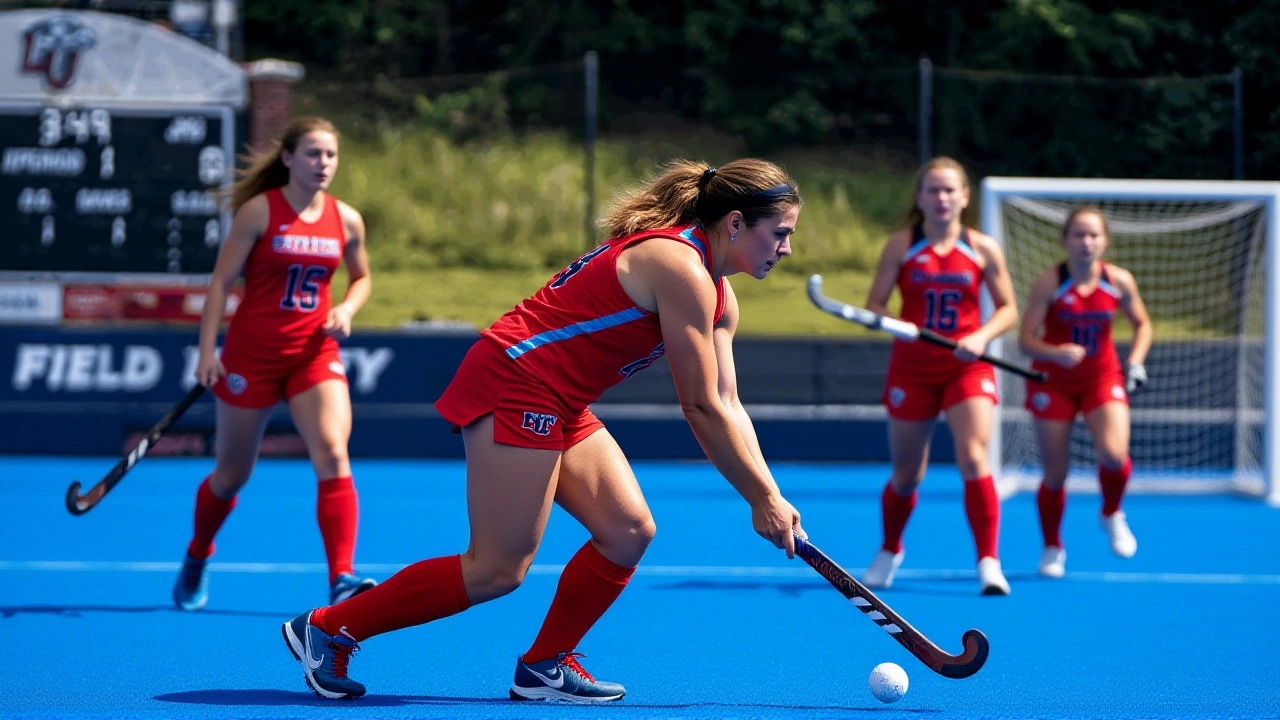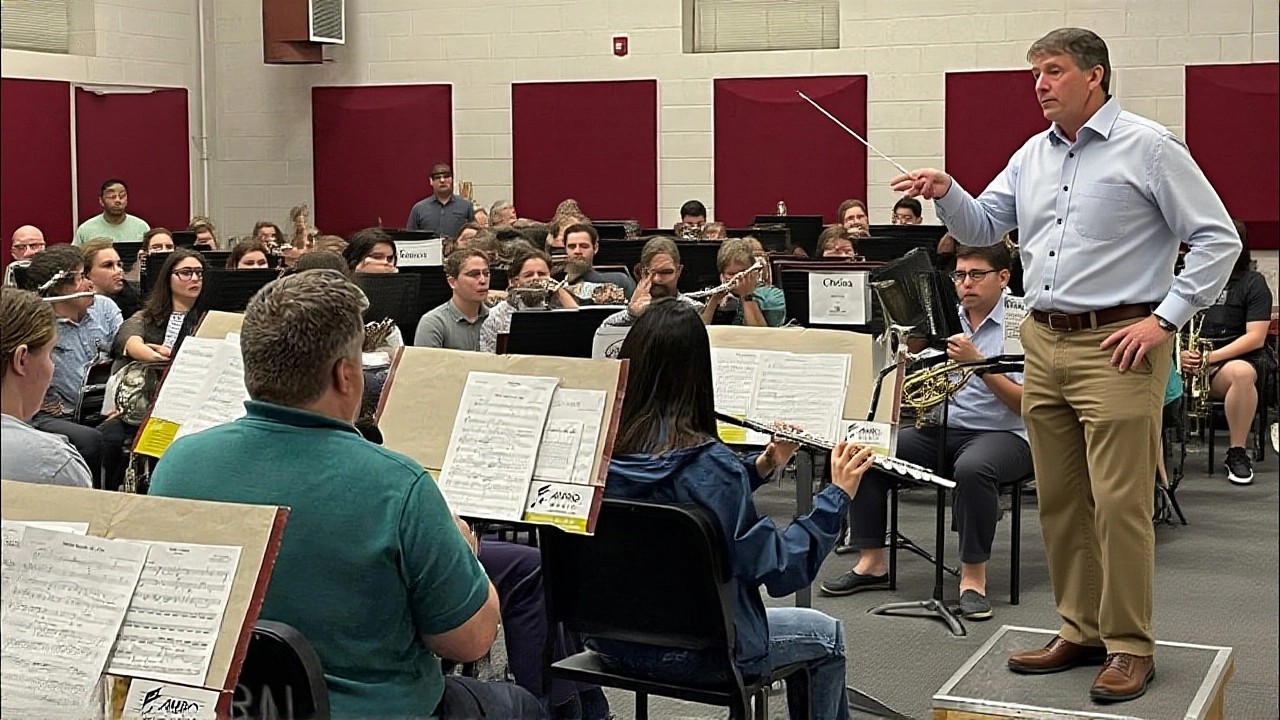The final note of the Starkville-MSU Community Band’s fall concert series will ring out on Starkville, Mississippi this Sunday, November 23, 2025, at 2:00 p.m. — and yes, it’s completely free. No tickets. No lineups. Just music. The performance, likely held in the acoustically rich Bettersworth Auditorium inside Lee Hall on the Mississippi State University campus, caps off seven weeks of community-driven melodies that began on October 12. It’s the kind of quiet cultural heartbeat that makes small-city life feel richer — and it’s happening right here, in plain sight, without fanfare.
More Than Just a Band — A Community Bridge
The Starkville-MSU Community Band isn’t just a group of musicians gathering to rehearse. It’s a living bridge between university students, faculty, and local residents who might never step foot inside a lecture hall but still want to hear live music that moves them. The ensemble operates under the umbrella of the Starkville-MSU Symphony Association, which also oversees the Symphony Orchestra, Jazz Combo, and Community Chorus. That means this isn’t an isolated project — it’s part of a larger ecosystem of arts access that Mississippi State University has quietly nurtured for decades.The Department of Music’s July 2025 listing promised a mix of “contemporary and traditional band literature as well as marches, patriotic music, Broadway show tunes.” And that’s exactly what audiences got. From Sousa’s stirring cadences to selections from Les Misérables, the repertoire was deliberately chosen to appeal to generations. Grandparents brought grandchildren. College kids skipped study sessions. Local retirees showed up in their Sunday best, just to sit and listen. No one was asked for a dime.
The Quiet Force Behind the Music
Behind the scenes, the coordination falls to Bethany Shipp, the contact person listed in MSU’s October 10 announcement. Her title isn’t public, but her impact is. She’s the one who books the halls, sends out reminders, coordinates with student section leaders, and likely spends hours tracking down sheet music for obscure arrangements. She doesn’t get headlines. But on November 23, when the last chord fades and the crowd claps — not out of obligation, but because they truly felt it — she’ll be there, smiling quietly in the back.What’s remarkable is how routine this has become. The fall concert series isn’t new. It’s been running for years, following the same rhythm: October kickoff, weekly rehearsals, Sunday afternoon performances. The Mississippi State University Department of Music has long treated public concerts not as optional extras, but as core missions. In 2024, the Symphony Orchestra’s 55th season ended with a packed house. In 2023, the Community Chorus performed a holiday program that drew over 600 people to the university chapel. This isn’t outreach. It’s ownership.
Why This Matters — And Why It’s Rare
In a time when arts funding gets trimmed first, and community programs are often deemed “non-essential,” Mississippi State University is doing something radical: it’s saying music isn’t a luxury. It’s a necessity. And it’s not just for music majors. It’s for the barista who plays trombone on weekends. The retired engineer who still reads sheet music. The high schooler who dreams of studying composition.Compare this to other universities where community bands have folded due to budget cuts. In nearby Tupelo, the community orchestra disbanded in 2022 after losing its city grant. In Oxford, the university scaled back public concerts to two per year. But in Starkville? Seven concerts. Every fall. Free. Always.

What Comes Next
The fall concert ends on the 23rd, but the music doesn’t stop. The Starkville-MSU Symphony Association already has its spring schedule in motion. The Symphony Orchestra returns in February. The Community Chorus rehearses through January. And by March, the Jazz Combo will be swinging through local cafés and libraries. The pattern is clear: music here isn’t seasonal. It’s structural.Even the venue hints at permanence. Bettersworth Auditorium has hosted these concerts since the 1980s. The chairs are worn. The stage lights flicker sometimes. But the sound? It’s perfect. And that’s the point — it’s not about polished perfection. It’s about presence. About showing up. Together.
Frequently Asked Questions
Is the November 23 concert really free for everyone?
Yes. The Starkville-MSU Community Band’s fall finale is completely free to attend, with no tickets or reservations required. This follows the Department of Music’s longstanding policy of making all community performances accessible without financial barriers — a practice that’s continued since at least 2018.
Who can join the Starkville-MSU Community Band?
Any musician aged 16 and up — student, faculty, or Starkville resident — can audition. There are no strict skill requirements, but members are expected to read music and commit to weekly rehearsals. Many participants aren’t music majors; some are teachers, nurses, or retired engineers who still play their instruments because they love it.
Where exactly is the concert taking place?
While the official announcement doesn’t confirm the venue, every fall concert since 2020 has been held in Bettersworth Auditorium inside Lee Hall at 1437 Fire Station Road, Starkville. The 400-seat hall is acoustically designed for wind ensembles and is the standard venue for all Starkville-MSU Symphony Association events.
What kind of music will they play on November 23?
Based on the Department of Music’s July 2025 program listing and past performances, expect a mix of patriotic marches like The Stars and Stripes Forever, Broadway medleys from Chicago or Phantom of the Opera, and contemporary wind ensemble pieces by composers like John Mackey or Valerie Coleman. The program is designed to be familiar yet fresh — something that connects with listeners of all ages.
How is this different from the MSU Symphony Orchestra?
The Symphony Orchestra is made up mostly of music majors and graduate students, performs classical repertoire, and requires auditions. The Community Band is open to all skill levels and focuses on accessible, popular, and patriotic music. Both are under the same association, but the Community Band is intentionally less formal — and more inclusive.
What’s the history behind this program?
The Starkville-MSU Community Band was founded in 1997 as part of an initiative to strengthen university-community ties. It began with 25 players. Today, it regularly includes over 80 musicians. The Department of Music has never charged for public concerts, believing music should be a shared public good — not a commodity. That philosophy has kept the program alive through budget cuts and changing priorities.
